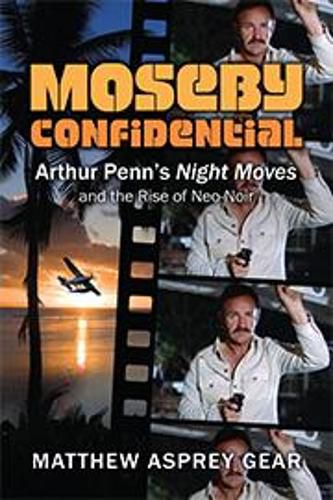Readings Newsletter
Become a Readings Member to make your shopping experience even easier.
Sign in or sign up for free!
You’re not far away from qualifying for FREE standard shipping within Australia
You’ve qualified for FREE standard shipping within Australia
The cart is loading…






This title is printed to order. This book may have been self-published. If so, we cannot guarantee the quality of the content. In the main most books will have gone through the editing process however some may not. We therefore suggest that you be aware of this before ordering this book. If in doubt check either the author or publisher’s details as we are unable to accept any returns unless they are faulty. Please contact us if you have any questions.
The making of Night Moves is the story of the collaboration of two artists of starkly different sensibilities - Alan Sharp the hopeless fatalist, Arthur Penn the agitating progressive. Each was just beginning to descend from his peak of cultural relevance. Sharp and Penn came together in 1973 to make a dark film about an America bereft of answers. Everything seemed in place for a triumph. Finally, in careers plagued by compromise, there was both an adequate budget and artistic freedom. Gene Hackman’s performance would expertly particularise an archetype fracturing before our eyes - the knightly private detective unable to solve his case, the macho American male desperate for certainty but lost at sea.
But neither Penn nor Sharp was satisfied with the resulting movie and disagreed over its final form. After a long delay, Warner Brothers cut its losses and dumped Night Moves into cinemas with a half-hearted publicity campaign. The movie’s reviews were mixed and it failed to make a profit in the summer of 1975. That season was dominated by Steven Spielberg’s Jaws, which provided Hollywood with a new and super-profitable model of film production.
And yet Night Moves has gone on to be recognised as one of the defining films of the 1970s, both as a profound human drama and as an enduring evocation of the zeitgeist. This Technicolor neo-noir, along with Robert Altman’s The Long Goodbye (1973) and Roman Polanski’s Chinatown (1974), reinvented and redeemed the private detective movie. A reactionary, nostalgia-crazed culture industry had tried to neuter the genre, reduce it to a repertoire of cliched gestures. This trio of pictures re-asserted film noir as an ideal cinematic language to explore the darkness at the heart of America.
$9.00 standard shipping within Australia
FREE standard shipping within Australia for orders over $100.00
Express & International shipping calculated at checkout
This title is printed to order. This book may have been self-published. If so, we cannot guarantee the quality of the content. In the main most books will have gone through the editing process however some may not. We therefore suggest that you be aware of this before ordering this book. If in doubt check either the author or publisher’s details as we are unable to accept any returns unless they are faulty. Please contact us if you have any questions.
The making of Night Moves is the story of the collaboration of two artists of starkly different sensibilities - Alan Sharp the hopeless fatalist, Arthur Penn the agitating progressive. Each was just beginning to descend from his peak of cultural relevance. Sharp and Penn came together in 1973 to make a dark film about an America bereft of answers. Everything seemed in place for a triumph. Finally, in careers plagued by compromise, there was both an adequate budget and artistic freedom. Gene Hackman’s performance would expertly particularise an archetype fracturing before our eyes - the knightly private detective unable to solve his case, the macho American male desperate for certainty but lost at sea.
But neither Penn nor Sharp was satisfied with the resulting movie and disagreed over its final form. After a long delay, Warner Brothers cut its losses and dumped Night Moves into cinemas with a half-hearted publicity campaign. The movie’s reviews were mixed and it failed to make a profit in the summer of 1975. That season was dominated by Steven Spielberg’s Jaws, which provided Hollywood with a new and super-profitable model of film production.
And yet Night Moves has gone on to be recognised as one of the defining films of the 1970s, both as a profound human drama and as an enduring evocation of the zeitgeist. This Technicolor neo-noir, along with Robert Altman’s The Long Goodbye (1973) and Roman Polanski’s Chinatown (1974), reinvented and redeemed the private detective movie. A reactionary, nostalgia-crazed culture industry had tried to neuter the genre, reduce it to a repertoire of cliched gestures. This trio of pictures re-asserted film noir as an ideal cinematic language to explore the darkness at the heart of America.